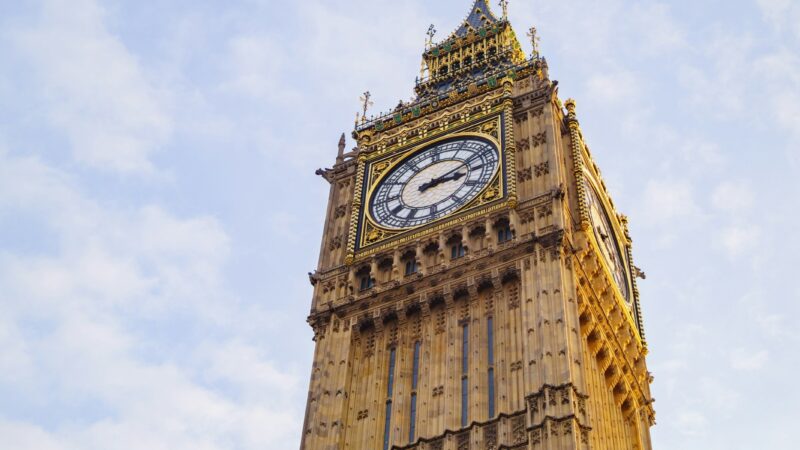Introduction
As the world grapples with the urgent need to combat climate change, discussions surrounding CO2 emissions and their impact on the global economy has taken centre stage. One contentious issue that has emerged is the concept of CO2 import tariffs. Such tariffs would aim to address the soaring demand of exporting carbon emissions to countries like China and India while seemingly reducing emissions domestically. However, I will proceed to argue that this approach harms the British economy and businesses alike, creating an illusion of progression in a desperate ploy for Western nations to ‘feed their image‘ on the global stage, this issue has also exacerbated the case to accelerate the implementation of CO2 import tariffs – levelling the playing field for sustainable, British industrial goods.
The Mirage of Reduced Emissions
The introduction of CO2 import tariffs, scheduled for 2026, is undoubtedly a step in the right direction, however, there is a growing consensus that these tariffs should be implemented sooner rather than later, with more stringent fees. The primary reason for this urgency is the alarming trend of British businesses struggling to compete with offshore prices, due to their minimal to no CO2 regulations in countries like China and India.
Statistics will tell the same story: Over the past decade, European nations have made significant strides in reducing their CO2 emissions. For instance, the European Union’s emissions fell by 24% between 1990 and 2019. However, as a result of these reductions, imports from Asian nations, particularly China, have surged. In 2019, the UK alone imported goods worth £49.5 billion from China, a significant portion of which was produced in industries with higher CO2 emissions. This shift in emissions from the West to the East raises critical questions about the effectiveness of domestic emission reduction efforts.
Yes, it is obvious Western nations have made a conscious effort to drastically manage C02 emissions, however it cannot be denied that this effort has a little to no effect on global emission rates. Since 2005 for the US and 1990 for Europe, CO2 emissions have operated at a downward tangent, however at the same time both China and India have increased their emissions year on year – with no reduction.
Levelling the Playing Field
The argument in favour of accelerating CO2 import tariffs rests on the premise of creating a level playing field for sustainable goods. British companies that have had to adhere to stringent environmental regulations have faced a significant competitive disadvantage when competing against products manufactured in countries with laxed emission expectations. This not only harms domestic businesses, but also undermines the goals of reducing global emissions, thus the only identifiable solution would be to either reduce our own emission regulations, or introduce a boarder tariff, pinpointed at nations with subnormal CO2 rates.
Through imposing these higher import tariffs on goods produced in extreme CO2-emitting countries, the UK can incentivize foreign manufacturers to adopt cleaner manufacturing practices, actively reducing global emission rates – rather than feeding our emissions elsewhere. Such tariffs would reflect the true environmental cost of the imported goods, reducing the price advantage enjoyed by high-emission industries abroad. This, in turn, would encourage British consumers to choose more sustainable options, fostering a transition towards cleaner and greener products. But that isn’t the only benefit! As a result, one would expect us to become more self-sufficient, and as a nation be less reliant overseas and more focused on our own industrial goods.
Addressing Arguments Against CO2 Import Tariffs
Some argue that Western nations have enjoyed an unfair advantage for centuries and that it is now their responsibility to bear the economic costs of climate change. While historical inequalities can indeed be argued, I would contend that any attempts to do so would be in vain, combined with a lack of understanding that if tomorrow we relaxed all of our climate regulations (which is a lot), then our economic situation would soar higher – deceitfully so – than fellow European nations.
Picture a scenario where the UK could potentially usher in a wave of economic benefits – via little to no climate regulations. Industries seeking lower production costs might see the UK as a more attractive destination, enhancing our global competitiveness. Sectors with high energy consumption, like manufacturing and heavy industry, would find it financially advantageous to operate in a less regulated environment, resulting in greater job creation. Does that sound familiar? Because this is precisely how China and co have operated over the last 20 years, summarizing why their economy has taken such a colossal leap.
Arguing that because of historical inequalities we should just expect Western nations to continue to lose business and incur high costs for the sake of climate change, and only to see reduced emissions move elsewhere, simply ignores the interconnectedness of our global economy. The environmental damage caused by unchecked emissions in one part of the world ultimately affects us all. By exporting emissions to countries with fewer regulations, we are merely shifting the problem, not solving it. If global emissions continue to rise, while our own emissions head towards net zero, it begs the question: what is the point in all of this? Why persist in regulating our businesses to the brink of collapse, relinquishing our capacity to sustain our domestic market, and fostering an import-dependent culture, all while our endeavours seem to yield no significant results?
Conclusion
To conclude, it is undeniable that CO2 import tariffs represent a crucial tool in addressing the harmful practice of exporting emissions to countries with non-existent regulations. While there is a similar scheme set to be introduced in 2026, there is a compelling case for their acceleration and strengthening of this. The fact of the matter is that European nations’ reduction in CO2 emissions has only led to a surge in imports from high-emitting countries, highlighting the need for immediate action and showcasing to other nations that the only way to grow their economy is to mass produce (with high CO2 costs) for the sake of us Western nations to ‘look good on the global stage’.
These tariffs are not about punishing other nations, but rather about creating a level playing field for sustainable and British goods. They will encourage cleaner production practices globally and drive the transition to a more sustainable and equitable global economy.



